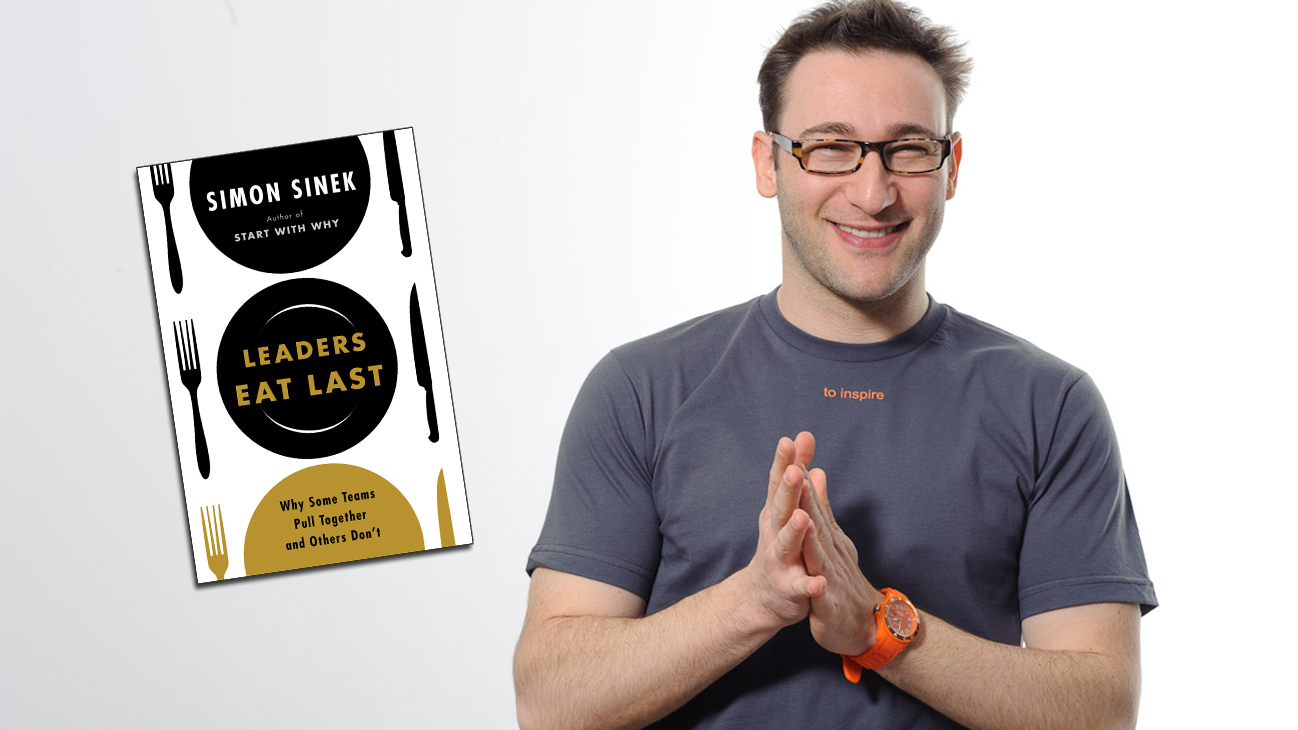Simon Sinek is an optimist. He believes in a bright future and our ability to build it together. Described as “a visionary thinker with a rare intellect,” Simon teaches leaders and organizations how to inspire people. With a bold goal to help build a world in which the vast majority of people go home every day feeling fulfilled by their work, Simon is leading a movement to inspire people to do the things that inspire them. Elliot Weissbluth, the CEO of HighTower, a national, advisor-owned financial services company serving high net worth and institutional clients, recently had the pleasure of hearing Simon speak, and wrote about it for The Huffington Post:
I have no patience for charlatan CEOs who take undue credit for being “visionaries.” But I admire great leaders, those who know their job isn’t to bask in the spotlight, but to relentlessly drive growth and move their organizations forward.
Good leadership is critical to innovation. That’s why I invited Simon Sinek, author of “Leaders Eat Last” (and subject of the second most popular video of all time on TED.com) to speak last month.
Sinek looks at the biological foundations of human behavior and relationships, and focuses on how we can use these fundamentals to build better organizations. Leaders are responsible for creating an environment where people collaborate to protect, prosper, motivate — and innovate — just like our hunter-gatherer ancestors had to do.
Bad leaders hesitate to embrace change for a number of reasons: fear, greed, apathy and laziness. You can tell them by their common refrain, “If it’s not my idea, how can it be any good?”
Good leaders, on the other hand, live by these truths:
1. You can’t innovate if you’re afraid to fail (and yes, fail fast, and keep the blast zone in the kitchen).
“Leaders Eat Last” emphasizes the importance of trust and safety in the workplace. Although we’re no longer hunting gazelles or fleeing from predators who want us for dinner, our bodies still respond like we are.
When you use fear as a motivator, you’re stopping innovation at the biological level. Fear sends cortisol pumping through the veins, compromising immune systems and reducing our capacity for trust and cooperation, which are essential to drive innovation.
Failing — experimenting and tinkering until you get the desired result, with plenty of missteps along the way — is not the same as failure. Failing and trying again are necessary ingredients for success.
2. Individual rewards hinder innovation (and results).
Every organization has its “superstars,” but without the collaboration and support of a team, superstars are rarely effective.
There is always a place for individual contribution. A single person who has the passion and conviction to view the problem differently may generate some of the best ideas. And groups of people each having pride in their individual contributions, while not the same as true collaboration, are still critical to innovation.
But rewarding the individual and not the group encourages self-preservation instead of cooperation. If someone is not worthy of sharing in the success, regardless of who is the “star of the moment,” perhaps that person does not belong on the team.
There is another, more straightforward reason to look past individual achievement: rewarding the person does little to improve the team or the business over the long term.
In a talk he gave at the RSA, Dan Pink summarized an economics experiment that found incentivizing performance is only effective for straightforward or mechanical tasks. When the assignment was complex and challenging, participants generated inferior results when promised increasingly greater financial incentives.
If you want to motivate people to do better, don’t hand a big check to the guy who made you the most money in the last quarter. Find out what really drives your success, and reward the groups who do it every day — especially if they’re not taking credit for it.
3. Challenge + Purpose = Creativity + Achievement
Fear kills innovation, but so does complacency. Corporate behemoths with established reputations and healthy market share are far less motivated to take risks, experiment or change their ways (despite the fact that they’re all in danger of being toppled by disruptive newcomers). To be remarkable, we need to work toward a purpose bigger than our paychecks.
Sinek has the last word on how great leaders motivate their people:
“If the leaders of organizations give their people something to believe in, if they offer their people a challenge that outsizes their resources but not their intellect, the people will give everything they’ve got to solve the problem. And in the process, not only will they invent and advance the company, they may even change an industry or the world.”
By Elliot Weissbluth/Huffington Post/July, 2014

